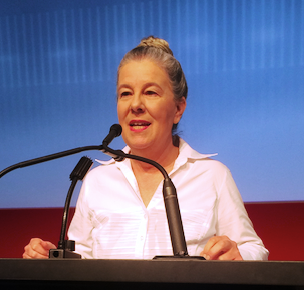- Home
- About Us
- The Team / Contact Us
- Books and Resources
- Privacy Policy
- Nonprofit Employer of Choice Award

 Standards are the first cousin to ethics. With strong organizational standards, charities can reduce problems as well as ensure proper oversight by staff and leadership. Cooperation Canada, who note that WE Charity did not subscribe to an external Code of Ethics or Standards recognizes that ethics and operations standards are inter-connected. Their resources contain information on both.
Standards are the first cousin to ethics. With strong organizational standards, charities can reduce problems as well as ensure proper oversight by staff and leadership. Cooperation Canada, who note that WE Charity did not subscribe to an external Code of Ethics or Standards recognizes that ethics and operations standards are inter-connected. Their resources contain information on both.
If your organization is not a member of an international organization, the Imagine Canada Standards Program has a formal accreditation that helps strengthen organizations. (full disclosure, I have been a volunteer with Imagine Canada's Standards for over 10 years.)
Most of our organizations have volunteers. Volunteer Canada has the Canadian Code for Volunteer Involvement, which is an excellent guide. It also includes an audit tool to help you stay on top of your adherence to this code. Auditing your compliance with a code is a great way to make sure you avoid problems or catch them early. Working with people is complex. Similar to Volunteer Canada, the Volunteer Management Professionals of Canada have a set of Standards of Practice.
In addition to codes for organizations, there are also codes for individuals. For example, Apra Canada, the professional association for prospect researchers has a longstanding commitment to ethical practice. The Apra Canada Statement of Ethics has important insights in this area.
The Association of Fundraising Professionals (AFP) first adopted their ethical code in 1964 which has been regularly updated. In addition to the code, AFP has an entire resource section on its website on the topic of ethics. (full disclosure, I have been a member of AFP since 1989 and they are Hilborn advertisers).
The Association of Healthcare Philanthropy (AHP), provides particularly relevant ethics information for those working with patients or other people who participate in the health care system. AHP also has a resource section highlighting their work in the area of ethics.
The Canadian Association of Gift Planners (CAGP) provides a useful framework for the area of gift planning. Since this is a specialist area with its own set of complex issues, their Code of Ethics is very helpful.
Not surprisingly, The Chartered Professionals in Human Resources of Canada have a code of ethics. Since charities work with both employees and volunteers, having knowledge of the CPHR Code of Ethics & Rules of Professional Conduct is valuable.
Since money is an area where a lot can go wrong, CPA Canada has a particularly robust set of resources on ethics as well as much professional education. Money can be a big temptation so it's important to have a firm framework in place.
Some organizations combine ethics with standards of practice. After all, ethics is both individual and also part of an organization overall. By knowing the relevant ethical codes and standards for your area of work, you can make sure to keep yourself on the right side of the line.
Ann Rosenfield has been a member of the Imagine Canada Standards volunteers for over 10 years. She is a past member of the AFP Ethics Committee and has spoken on the topic of ethics across Canada including a Karaoke based session.
Cover photo is by Anna Shvets